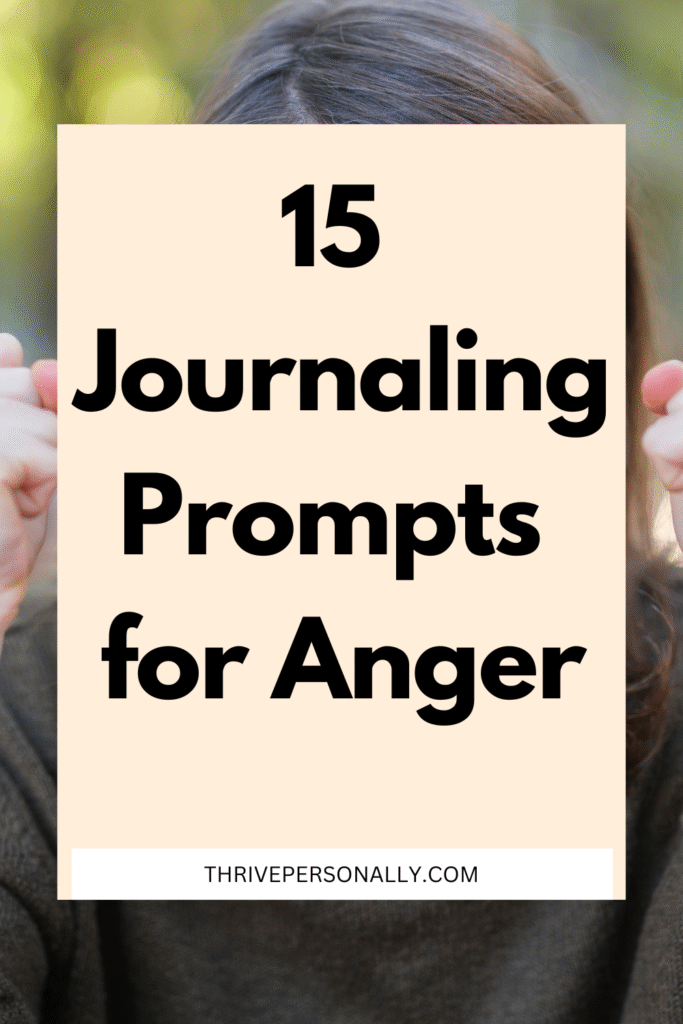Every person feels anger. It is part of being human. But when that anger isn’t handled the right way, it can grow stronger and affect your thoughts, health, and even your relationships. That is why you need a safe way to release it. Journaling is one of the best tools to understand and deal with anger.
Journaling is more than just writing. It is a way to handle what is going on inside of you. When you’re angry, your thoughts may be all over the place or painful. Writing them down helps you place them somewhere safe. It calms your mind. It helps you understand your feelings. It helps you know yourself better.
The good thing about journaling is that you don’t need to be a great writer. There are no rules. All you need is a pen, some paper, and a few minutes. It is something anyone can do in their own way. The goal is to let out your anger in a healthy way and figure out what caused it.
15 Journaling Prompts for Anger
1. What made me get angry today and how did I respond?
Sometimes we’re angry but we don’t stop to ask why. Writing down what happened can help you spot patterns. Did someone say something hurtful? Were you ignored? Did things not go the way you hoped? When you write what happened and how you responded, you start gaining control over your future reactions.
Read also: How to Consistently Journal – 5 Tips
2. So what is under this anger?
Anger can hide other feelings. Maybe you’re feeling hurt, left out, or scared. Studies show that exploring the root of anger can help it make more sense. This prompt asks you to go deeper.
3. What would I like to tell the person who upset me?
This isn’t about starting a fight. It’s about letting it out. When you’re angry, you may not say what you feel. Writing gives those words a safe place to land.
Read also: 15 Tips on How to Journal for Healing
4. What did anger do to my body today?
Anger isn’t just in your mind—it affects your body too. Maybe you had a headache, tense muscles, or an upset stomach. Use this prompt to become more aware of how anger shows up in your body so you can take better care of yourself.
5. What could I do differently if this happened again?
You can’t control others, but you can control how you respond. Writing about how you’d react next time helps you learn and prepare. Reflection is where growth starts.
Read also: 30 Best Journaling Ideas for Clarity on Your Path
6. The first time I remember feeling this kind of anger was when?
Some anger runs deep. It may go back to childhood or early life events. This prompt helps you trace your feelings back to their roots.
7. How do I feel when I allow myself to be angry?
Many people grow up thinking anger is bad. But feeling angry doesn’t make you a bad person. It makes you human. This prompt helps you accept your anger without shame.
8. What would I say to a friend who felt the way I do now?
Sometimes, you’re kinder to others than you are to yourself. What advice or comfort would you give a friend who felt this way? Write it down. Then read it back to yourself with that same kindness.
9. Why am I really angry, and can I do anything about it?
You can’t always control what people do, but you can choose how to respond. This prompt helps you see the difference between what’s in your hands and what’s not. That clarity brings peace.
10. What can I learn from this anger?
Even painful feelings can teach us something. Maybe your anger is showing you what matters most to you. Maybe it’s telling you to set better boundaries. Writing it out helps turn pain into purpose.
11. What would forgiveness look like here—for me or for them?
Forgiveness doesn’t mean forgetting or excusing what happened. It means letting go of the pain and freeing yourself. This prompt asks what forgiveness might look like, even if you’re not ready to do it yet.
12. What happens if I keep holding on to this anger?
When you hold on to anger, it can wear you down. It hurts your mind, your body, and your relationships. Writing down what could happen if you don’t let go might push you toward healing.
13. How can I express my anger in a healthy way next time?
Anger doesn’t have to blow up. It can be shared in a calm, clear way. Use this prompt to think about other ways you could react—like speaking up, taking a break, or asking for help.
14. How would I feel if I let go of this anger?
Imagine how life would feel without the weight of anger. Letting go doesn’t mean you weren’t hurt. It means you’re ready to move forward.
15. What do I need right now to feel better?
Anger can come from not getting what you need. Maybe you need to be heard. Maybe you need sleep. Maybe you need space. Use this prompt to figure out what would help your heart right now.
Final Thoughts
Journaling in this way does more than just help you release feelings. It helps you uncover the truth. It gives your anger a voice without letting it control your life. The more you write, the more you heal. The more you think, the more you grow. You don’t have to be perfect. You just have to show up for yourself.
Save the pin for later



